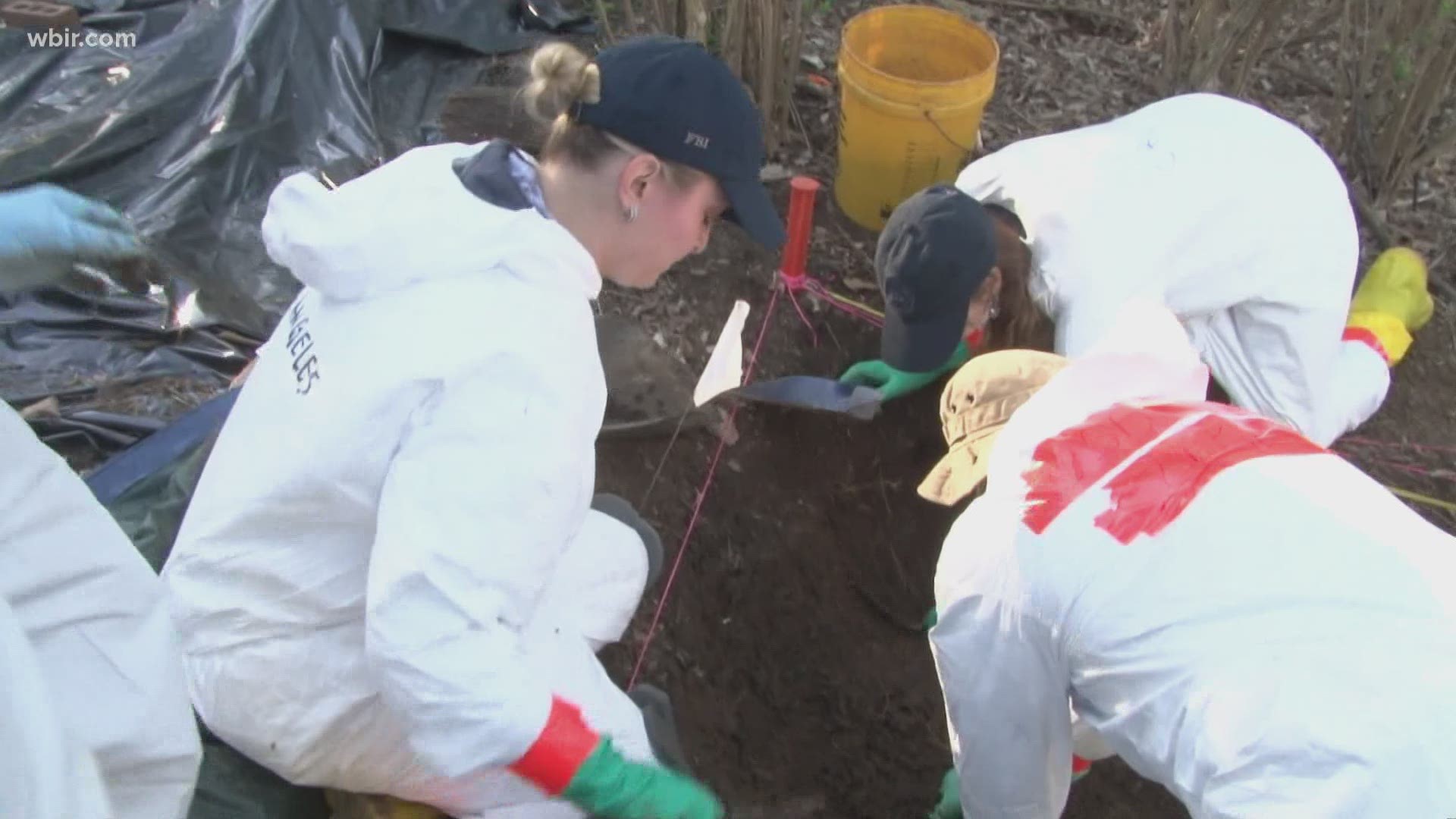KNOXVILLE, Tenn. — Could the changing color of leaves help in the search for a dead body?
That's a question the University of Tennessee, Knoxville’s Anthropological Research Facility—better known as the Body Farm—hopes to find out.
Research at the Body Farm, where donated bodies are studied as they are left to decay naturally in a variety of different ways, has provided countless breakthroughs in forensic science that have helped law enforcement for decades. It was founded by world-renowned forensic anthropologist Dr. Bill Bass.
Now forensic anthropologists and plant and soil science researchers from the UT Institute of Agriculture are working together to determine if the nutrients that are released by a decaying body might change the coloration of nearby trees in such a way that it will help narrow down the search for a victim.
“The goal is to limit the space that’s searched on the ground,” said Professor of Plant Sciences Neal Stewart. “Instead of sending out search crews over many square miles, you can identify certain spots where people can focus their search. I do believe we can do that if we better understand how plants respond to decomposition and the flush of nutrients.”
The research started in June, but has been delayed by COVID-19. The team started by placing three donor bodies at locations within the Body Farm that have trees and woody shrubs.
“The idea is to collect soil data and to gauge how microorganisms cause changes in the soil and what chemicals are produced, notably nitrogen. We can then understand the plant responses over days to weeks. If we could see a response within two to three weeks, that would be a game changer,” said Stewart.
The researchers will use a new laser-based sensor to analyze individual leaves to measure how their colors and fluorescence changes over time when plants are near human remains.
The FILP (fluorescence-inducing laser projector) could eventually be mounted on a drone to aid search efforts.
“As a natural laboratory to observe human decomposition,” said Dawnie Steadman, director of the Forensic Anthropology Center, “the Body Farm is the perfect location to test and validate new technologies to assist in body and grave detection. We hope that this research will promote new opportunities to leverage cutting-edge technologies for forensic purposes.”
The research is funded by an award from the Defense Advanced Research Projects Agency (DARPA), which is responsible for the development of emerging technologies for use by the military. Additional support came from UT and from US Department of Agriculture Hatch grants.

